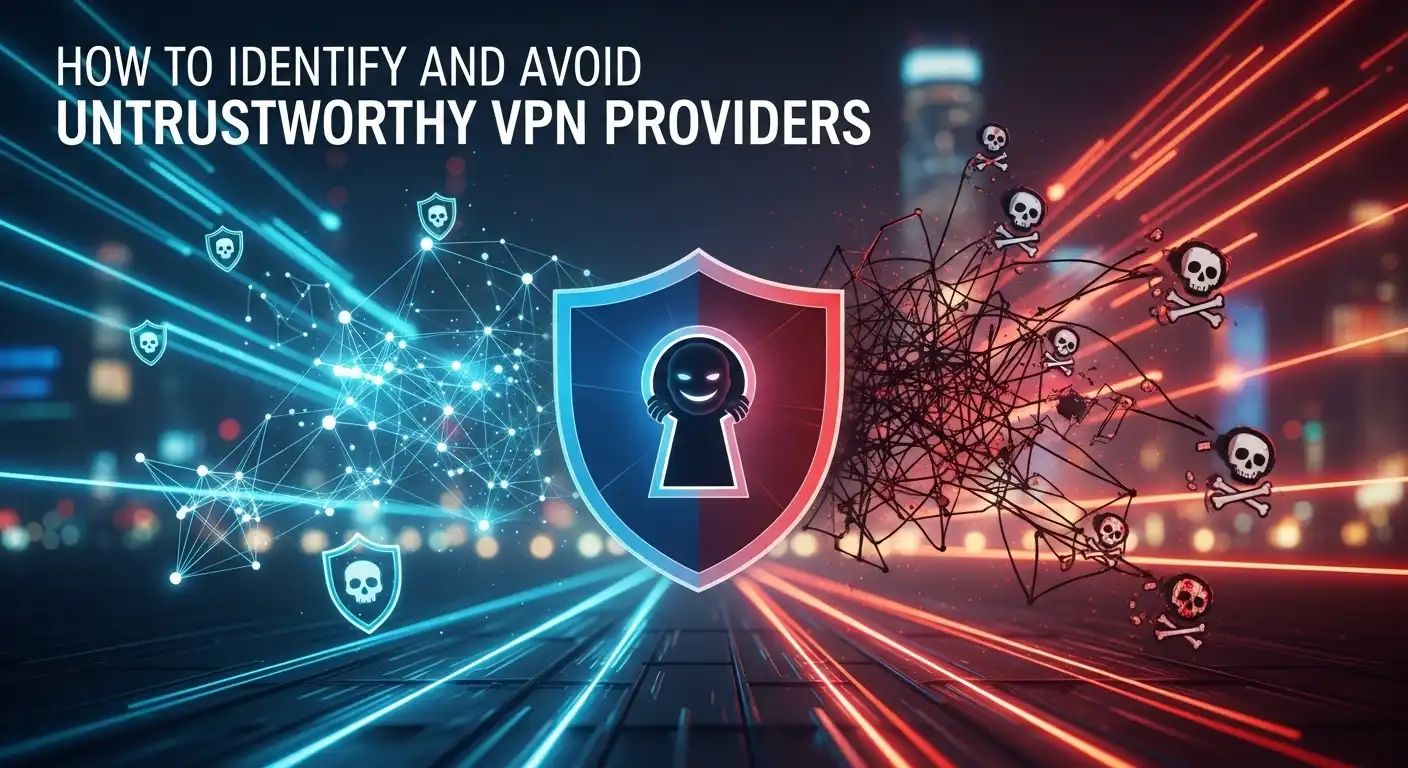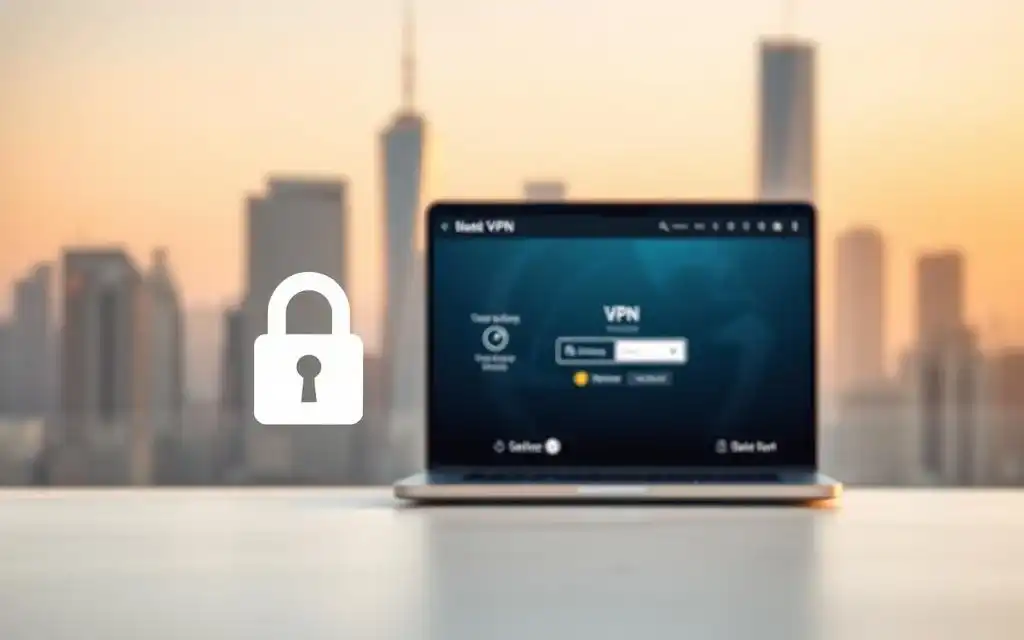In the sprawling digital landscape of 2024, a Virtual Private Network (VPN) has transformed from a niche tool for tech enthusiasts into an essential utility for the average internet user. With growing concerns over data privacy, online censorship, and cybersecurity threats, the demand for VPNs has skyrocketed. However, this boom has also led to a saturated market flooded with countless providers, each claiming to be the fastest, most secure, and most private option available. The unfortunate reality is that many of these services are not just ineffective; they can be actively harmful to your privacy. This guide serves as your comprehensive manual on how to identify untrustworthy VPN providers, ensuring your shield doesn't become your greatest vulnerability. The Critical Importance of Scrutinizing a VPN's Logging Policy The single most important document a VPN provider publishes is its privacy policy, which contains its logging policy. This is the bedrock of trust between you and the service. A VPN's core promise is to anonymize your internet traffic by routing it through an encrypted tunnel. If the provider is secretly logging your activity—the websites you visit, the files you download, the messages you send—it completely negates the purpose of using a VPN. An untrustworthy provider can potentially sell this data to advertisers, share it with third parties, or be compelled to hand it over to government authorities. Understanding the nuances of logging is crucial. VPN providers can keep two main types of logs. Connection logs (or metadata logs) typically include non-identifying information like connection timestamps, the amount of data transferred, and the server you connected to. While less invasive, extensive connection logging can still be used to de-anonymize users over time. The real danger lies in usage logs (or activity logs), which record your browsing history, DNS queries, and IP addresses. A trustworthy VPN will maintain a strict and verified zero-logs or no-logs policy, meaning it does not collect or store any information that can be tied back to an individual user's online activity. The language used in a privacy policy is often intentionally vague. Phrases like "we may collect some data to improve our services" or "we log data for network maintenance" are significant red flags. These ambiguous statements create legal loopholes that allow the provider to collect more data than you think. A reliable VPN will be explicit and unequivocal in its policy, clearly stating what it does not log. Always read the fine print; your privacy depends on it. 1. Identifying Deceptive "No-Logs" Claims Many untrustworthy VPNs prominently feature "No-Logs Policy!" on their homepage, but their Terms of Service tell a different story. These deceptive claims are designed to lure in unsuspecting users who don't perform their due diligence. When you dig into their legal documents, you might find clauses that allow them to log your originating IP address "temporarily" or track bandwidth usage per user, which can still compromise your anonymity. True no-logs means no logs, period. The ultimate proof of a no-logs claim is independent, third-party verification. The most reputable VPN providers voluntarily subject their systems and policies to rigorous audits conducted by respected cybersecurity firms like PricewaterhouseCoopers (PwC), Deloitte, Cure53, or Leviathan Security. These firms examine the provider's server infrastructure and internal processes to confirm that their no-logs claims are technologically enforced and not just a marketing slogan. An audit report, especially one that is made public, is a powerful testament to a provider's commitment to transparency and user privacy. 2. The Role of Independent Audits An independent audit is not just a checkbox; it's a fundamental pillar of trust. It provides external validation that a VPN provider's practices align with its promises. Without an audit, a no-logs policy is merely a claim—a promise you have to take on faith. Given that the entire purpose of a VPN is to avoid having to trust your ISP or other entities, placing blind faith in a VPN provider is counterintuitive. Audits replace this faith with evidence. Conversely, the complete absence of any third-party audit is a considerable red flag, especially for a well-established provider. If a company has been operating for years and has never allowed an independent expert to verify its privacy claims, you should question why. It could suggest that their infrastructure wouldn't pass the scrutiny or that they simply don't see transparency as a priority. While a newer, smaller provider may not have had the resources for an audit yet, a major player in the market has no excuse. Jurisdiction and Its Impact on Your Privacy A VPN company is a legal entity, and like any company, it is subject to the laws and regulations of the country in which it is based. This legal home, or jurisdiction, has profound implications for your data privacy. If a VPN provider is headquartered in a country with invasive data retention laws or one that participates in international intelligence-sharing agreements, it can be legally compelled to monitor its users and surrender their data to government agencies. This is where the infamous 5, 9, and 14 Eyes Alliances come into play. These are international surveillance pacts between various countries to collect and share signals intelligence. If a VPN is based in a member country (such as the USA, UK, Canada, Australia, or Germany), its government can legally force the company to log user data. Worse, it can then share that data with other member nations, creating a vast surveillance network that is difficult for citizens to scrutinize. Therefore, choosing a VPN based in a privacy-friendly jurisdiction is a critical step in ensuring your digital security. These are countries without mandatory data retention laws and that are not part of the major surveillance alliances. Locations like Panama, the British Virgin Islands, and Switzerland have become popular havens for privacy-focused companies because their legal frameworks are designed to protect data, not exploit it. An untrustworthy provider might be based in an invasive jurisdiction while deceptively marketing itself as a bastion of privacy. 1. Understanding the 5, 9, and 14 Eyes Alliances





